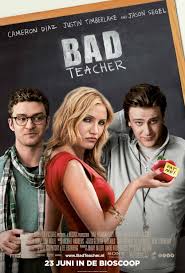Task 14:
 |
| http://thedailyquotes.com/wp-content/uploads/2013/01/respect-peoples-feelings-quote-good-life-quotes-cute-picture-pic.jpg |
Select any aspect / element of:
professionalism
professional behaviour
being a professional
that interests you and discuss in 300-350words.
 |
| https://encrypted-tbn1.gstatic.com/images?q=tbn:ANd9GcSBT4DgVKlrTw6Lifd4pchLDj6ddv7bIM92rbrT2yn-otfg6IDpjQ |
A: Professionalism
is important in all occupations. The most important part of professionalism is
being respectful to everyone. Literally EVERYONE, from upper management, peers,
admins, receptions, clients, family of clients, competitors to the stranger in
the elevator. Everyone should be respected, and when you respect them, you’ll
be respected yourself. Everyone have an equal desire for respect, it is the
basic foundation of all healthy relationships. When you are paying respect to
other people, it would be shown on your face; you’d have a sincere smile on
your face. As nutritionists/dieticians we’ll get to deal with a great range of
personalities and characters. Clients will have all sorts of backgrounds and
experiences, being respectful and not judging them are a crucial part in being
a nutritionist/dietician. However it may sound easy, but in fact it really
isn’t. Different people have different standard of being respectful, it also
depends on the culture they are from, and the background they are from.
Sometime you may get clients that don’t respect you, and it gets really hard to
respect those people who don’t respect you; it becomes extremely difficult when
you are sleep deprived, overworked, and having a bad day. It can be very hard
to remain respectful all the time, but as a professional you have to be able to
self-regulate and show respect no matter what situation you are in. To be a
true professional, one must be able to exhibit a high score of EI, by
considering other people’s feelings, being empathetic, and won’t let a bad day
determine how he acts. The best way to start practising being respectful is to
keep a sincere smile on your face at all times, it gets really hard for people
to disrespect you while you are smiling at them.
Some
example of being respectful:
Keep
eye contact while talking
Being polite
and using formal language
Listen
carefully while the other person is speaking
Never
interrupt who ever is speaking
Being
honest and trustworthy
Self-regulating
Say
thank you/please whenever possible
Having
a smile on your face
Treat
everyone equally
Being
caring and kind
Basic
manners
Show
patience and empathy
 |
| https://i.chzbgr.com/maxW500/3740840192/h4D446151/ |
 |
| https://encrypted-tbn1.gstatic.com/images?q=tbn:ANd9GcTcUpHzIW-MbPGkvHPfoMLeXijSAEbUmyc3ubYkwhkBNsZGarF5 |
Task 15:
Reflect on an experience when you don’t think you (or
someone you observed) were treated professionally?
What occurred during this situation – what were the behaviours that you viewed
as unprofessional?
How this situation could be transformed into a more professional interaction /
experience
A: My high school math teacher was really unprofessional; she
is really disrespectful towards her students. When someone did something wrong,
or didn’t do good in their tests, she’d embarrass them as much as she can. She
has to understand not all students are good at maths, there’s no need to
embarrass them in front of the whole class. Every time when a test result comes
out, she’d always tell the whole class who got the lowest mark, and she’d put
down the test ranking to remind everyone. This is very unprofessional, she is
embarrassing students in front of the whole class, and putting them down in an
awful way, and also it’s very disrespectful towards the students, as the marks
are quite private, and it’s the student’s choice whether to tell people his
marks. Some people feel very uncomfortable sharing their marks. On top of that,
the teacher didn’t have student’s permission to announce their marks. What the
teacher did may lead to many problems, including lower self-esteem, depression,
bullying and discrimination. What the teacher should’ve done is to tell each
student’s mark separately. And if there is something wrong, the teacher should
talk to the student in private, instead of telling them off and embarrassing
them in front of the whole class.
 |
| https://encrypted-tbn3.gstatic.com/images?q=tbn:ANd9GcThXI0tinWRxqTS1T8M5w9CKrfbAXx-n9Mg4JcnlJUCV7N2R8PX |
There was another time when I fell asleep in
class, the same teacher told me to stand up for the whole class, and made me
feel very uncomfortable. I was very embarrassed, and felt like crying, my
dignity was destroyed. This was a similar situation as the one before. In this
case, the teacher should’ve waited until the end of class, and talked to me in
private, and ask what’s wrong, instead of scolding me and embarrass me in front
of everyone. Teachers should be more caring instead of being harsh and mean.
 |
https://encrypted-tbn2.gstatic.com/images?q=tbn:ANd9GcSi2pTdtAskbqf-gwZXBvfgEKK6DzB0aESTqpFceapdrmbCbY58Fg
|


